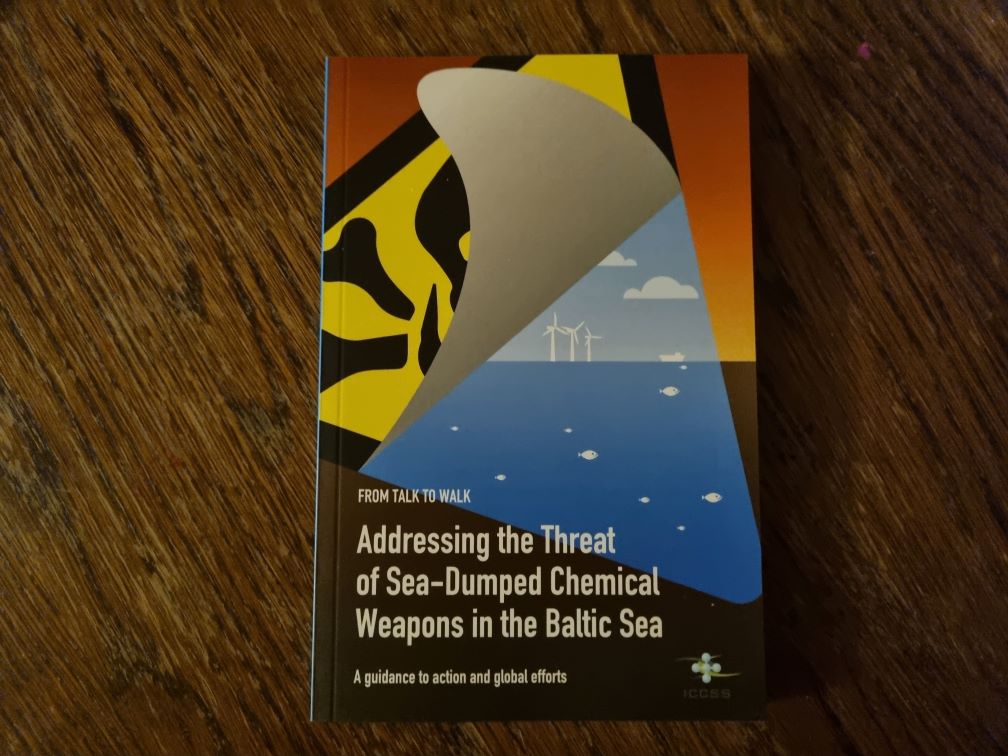Sea-dumped chemical weapons and munitions have long posed a significant threat to the environment, human health, and economic and social development. The Baltic Sea, in particular, has been heavily affected, with an estimated 50,000 tons of chemical weapons dumped in its waters after World War II. Recognizing the urgency of the issue, ICCSS is leading efforts to remove these weapons from the Baltic Sea and promote global action on their disposal.
"This publication marks a turning point in our approach to sea-dumped chemical weapons," stated Amb. Krzysztof Paturej, ICCSS President and co-author of the publication. "We believe it is time to move beyond endless debates and awareness campaigns and focus on real solutions. These weapons no longer present a significant security threat but instead pose economic, health, safety, and environmental concerns. It is crucial that we address these issues promptly and effectively."
The publication aligns with the European Parliament Resolution 2021/2567(RSP) on chemical weapons in the Baltic Sea, which advocates for the removal of sea-dumped chemical weapons. ICCSS is actively working to support the implementation of this resolution by promoting innovative and safe disposal methods. Through collaboration with global experts in policy, science, and technology, ICCSS aims to devise effective solutions to this urgent challenge.
The book delves into various crucial aspects related to sea-dumped chemical weapons. It covers the threats posed by these weapons and munitions to the environment, human health, and economic and social development. Additionally, it explores indicators of hazardous substances in the Baltic Sea and their potential long-term effects on the environment and human health. The publication also focuses on prevention, preparedness, and response to marine pollution, highlighting the importance of international cooperation and engagement.
Furthermore, the publication sheds light on the international legal norms and initiatives aimed at addressing the issue of sea-dumped chemical weapons. It showcases the role of organizations such as the OPCW, the United Nations, and the Council of the Baltic Sea States (CBSS) in dealing with this pressing issue. The book also examines the recent 2021 European Parliament Resolution on Sea-Dumped Chemical Weapons, which emphasizes the need for international action and increased cooperation among stakeholders.
Technology developments for the safe disposal of sea-dumped chemical weapons are a critical aspect covered in the publication. It discusses the advancements that have made safe disposal possible and provides insights into the safe removal and destruction of these weapons. The risks and potential hazards associated with the removal and disposal processes are also addressed, emphasizing the need for careful handling and mitigation measures.
In addition, the publication highlights the necessity of establishing an International Reference Center on Sea-Dumped Chemical Weapons. Such a center – initiated by the ICCSS- would serve as a hub for expertise, research, and policy development, enabling effective international collaboration and the exchange of best practices. ICCSS envisions this center as a crucial step towards addressing the challenges posed by sea-dumped chemical weapons on a global scale.
"We firmly believe that by bringing together experts from around the world and fostering collaboration, we can overcome the challenges associated with sea-dumped chemical weapons," said Amb. Paturej. "This publication serves as a call to action for the international community to join forces and work towards a safer and more sustainable future for our oceans and the communities that depend on them."
To kickstart this international campaign and engage relevant stakeholders, ICCSS will present the Polish edition of the book in Gdansk, Poland. This event will mark the beginning of a series of initiatives in various countries where the problem of sea-dumped chemical weapons and munitions persists. ICCSS aims to create awareness and mobilize concrete efforts for the removal of these weapons globally.
It is important to note that the effective solution of sea-dumped chemical weapons and munitions, as presented in the publication, is not only crucial for environmental and human health reasons but also opens the door to build wind farms in an environmentally friendly way. By safely removing these weapons, we can create a safer and more sustainable environment to harness renewable energy sources.
For access to the publication and further information about ICCSS and its initiatives, please visit [Insert Link].
About ICCSS:
The International Centre for Chemical Safety and Security (ICCSS) is a leading international non-profit organization dedicated to enhancing global chemical and biological safety and security, as well as industrial cybersecurity. ICCSS's mission is to promote the responsible development, use, management, and disposal of hazardous materials and enhance civil protection. Through its expertise, research, and resources, ICCSS assists governments, industries, and communities in managing and mitigating chemical and biological threats effectively, working towards a safer and more secure world.

